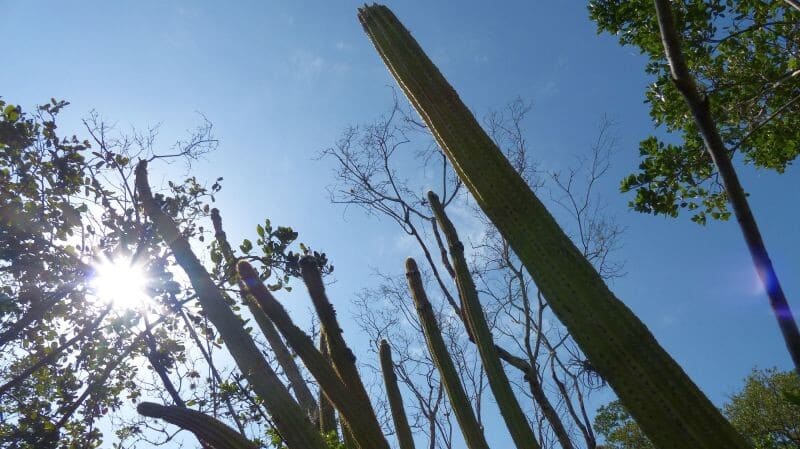
Plant species goes extinct in US because of climate change
What's the story
The Key Largo tree cactus, a species native to the US, has been driven to extinction in the wild due to rising sea levels, according to a study published in the Journal of the Botanical Research Institute of Texas. The escalating effects of sea level rise, intensifying storms and increasing tides have wiped out this once thriving species from Florida Keys. "If we don't do something, this loss is just going to accelerate," warned George Gann, co-author of the study.
Species decline
Extinction of Key Largo tree cactus: A closer look
In 2011, approximately 150 individuals of the Key Largo tree cactus were discovered in John Pennekamp Coral Reef State Park. However, by 2015, researchers noted a significant decline in the population due to animal attacks and their vulnerable location. "Too much salt is just a stressful environment for most plants," explained James Lange, study co-author and research botanist. By 2021, only a few cactuses remained after years of exposure to high tides and storms swamping their habitat with saltwater.
Environmental threat
Rising sea levels: A threat to Florida's native species
Sea levels around Florida Keys have been rising by an average of 0.16-inch per year since 1971, posing a significant threat to many species. "Unfortunately, the Key Largo tree cactus may be the bellwether for how other low-lying coastal plants will respond to climate change," said Jennifer Possley, lead author of the study. More than one in four native plant species in South Florida are critically threatened with regional extinction, due to this environmental challenge.
Species survival
Rescue efforts and future of the Key Largo tree cactus
The last remaining cacti were rescued from the wild by researchers and taken to a greenhouse for their survival. Despite plans to reintroduce the species back into the Keys, finding a suitable habitat that can withstand rapid climate changes has been challenging. The future of the Key Largo tree cactus in a wild environment made increasingly hostile by climate change remains uncertain. This rescue effort underscores the urgent need for effective conservation strategies in response to rising sea levels.
Endangered flora
Other threatened species in South Florida
The rising sea levels and changing climate conditions are not only threatening the Key Largo tree cactus, but also other native plant species in South Florida. More than one in four of these species, including rare plants like Garber's spurge, Smallflower lilythorn, Smallfruit varnishleaf, and Grisebach's dwarf morning glory, are threatened with regional extinction. These findings highlight the urgent need for comprehensive conservation efforts to protect the region's unique biodiversity, from the escalating impacts of climate change.